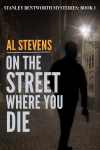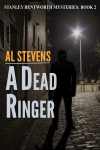Stage Fright
Stage fright is formally called “performance anxiety.” If you get stage fright, it usually comes before performances and auditions. It is a natural state of being, the fear that things will go badly and your audience will not approve. Performers do not usually have stage fright during rehearsals, which closely relates anxiety to the presence of an audience, which closely relates stage fright to the need for approval and a fear of rejection.
Stage fright usually starts sometime before a performance and grows in intensity until just before the performance begins, just before you go onstage. It can range from simple jitters to something approaching an extreme anxiety attack including cold sweats and vomiting. Its symptoms usually vanish once you are in front of the audience and the act is underway.
Stage fright is a nagging fear that the act will bomb. Something will go wrong. You will forget your lines. The sound system or lights will fail. Your props won't be where they ought to be or they will malfunction. The band will be too drunk to play. The dummy's string will break. The audience will not laugh. The audience will boo. They will throw vegetables. Or, in the case of an audition, the director will have you thrown out of the theater and will blacklist you from show business forever.
These things almost never happen. Except for the part about the band.
Stage fright manifests itself in many ways. Your stomach is nervous and you can't eat. Your mind races and you run through your lines over and over and worry about the act. Your hands sweat. They shake. You can't talk intelligently; you stammer and babble nonsense whenever you try to speak. You hurl your most recent meal.
Performers at all levels of fame and experience have stage fright.
Some performers, famous and otherwise, never have stage fright. Those who do tend to disbelieve those who do not when they say so. It becomes a matter of concern because if you suffer from stage fright, you might feel somehow inferior to a performer who does not get it. You feel like they are putting you down when they tell you smugly that they never have stage fright. Consequently, you often hear performers who suffer from stage fright insist that someone who does not is not a true performer, lacks the passion, is not among the best, and they cite examples of famous personalities who are known to endure something close to a nervous breakdown before every performance.
There is, however, no correlation between the quality of someone's performance and the degree to which they have stage fright.
What can you do about stage fright? If you have it, learn to live with it. In most cases the fear subsides when you begin your show. Things are underway and you are doing what you know how to do and the audience is reacting the way you'd expect them to. If you are well prepared and ready to go on, stage fright takes a back seat to the business of doing your show and entertaining the people.
Keep in mind that the audience is there to be entertained. They want you to succeed. They want to like you. If you make a mistake, they are on your side. The last thing they want is to see you drop your dummy and run crying from the stage, humiliated and ashamed. Your success is their pleasure. Your failure is their discomfort. They do not want to be embarrassed for you. They want everything to go well, and they graciously overlook small things that do not go well as long as most of the act is presented well and entertaining.
Unless they are a really tough, hostile audience.
Perhaps you can deliver speeches and presentations to large groups with no stage fright whatsoever, yet suffer from extreme jitters if you have to do something unfamiliar in front of a crowd, particularly something as complex as ventriloquism. This contradiction simply means that you are apprehensive about your ability to do well with the new activity and not that you suffer from congenital performance anxiety. You will get over your stage fright when you gain confidence in your ventriloquial skills.
Here's an old trick taught by public speaking teachers. Just before you go on, take a peek at the audience. Look at several people individually. Try to imagine who they are and what they do. Get to know them in your mind. Then, when you regard the audience, it's as if you are looking at old friends.
Here's another trick. Choose one or two people in the audience who appeal to you. Pick a pretty girl or a mischievous looking old guy. Play to that person. Try to amuse, impress, and entertain that person. Watch for that person's reaction. If he or she isn't reacting positively, choose another member of the audience and switch your focus to that person.
Here's yet another old trick. I don't know whether it works, but it is often mentioned. Look at the audience. Imagine them all naked. That makes them human and unworthy of your fear. No one can be intimidated by a bunch of naked people.
Just be reassured that if you have stage fright, it usually goes away as soon as your show begins. So, while you await your entrance, go ahead and sweat, shake, vomit, wet your pants, whatever. Then, when you hear your cue, go onstage and break a leg.
Stage fright usually starts sometime before a performance and grows in intensity until just before the performance begins, just before you go onstage. It can range from simple jitters to something approaching an extreme anxiety attack including cold sweats and vomiting. Its symptoms usually vanish once you are in front of the audience and the act is underway.
Stage fright is a nagging fear that the act will bomb. Something will go wrong. You will forget your lines. The sound system or lights will fail. Your props won't be where they ought to be or they will malfunction. The band will be too drunk to play. The dummy's string will break. The audience will not laugh. The audience will boo. They will throw vegetables. Or, in the case of an audition, the director will have you thrown out of the theater and will blacklist you from show business forever.
These things almost never happen. Except for the part about the band.
Stage fright manifests itself in many ways. Your stomach is nervous and you can't eat. Your mind races and you run through your lines over and over and worry about the act. Your hands sweat. They shake. You can't talk intelligently; you stammer and babble nonsense whenever you try to speak. You hurl your most recent meal.
Performers at all levels of fame and experience have stage fright.
Some performers, famous and otherwise, never have stage fright. Those who do tend to disbelieve those who do not when they say so. It becomes a matter of concern because if you suffer from stage fright, you might feel somehow inferior to a performer who does not get it. You feel like they are putting you down when they tell you smugly that they never have stage fright. Consequently, you often hear performers who suffer from stage fright insist that someone who does not is not a true performer, lacks the passion, is not among the best, and they cite examples of famous personalities who are known to endure something close to a nervous breakdown before every performance.
There is, however, no correlation between the quality of someone's performance and the degree to which they have stage fright.
What can you do about stage fright? If you have it, learn to live with it. In most cases the fear subsides when you begin your show. Things are underway and you are doing what you know how to do and the audience is reacting the way you'd expect them to. If you are well prepared and ready to go on, stage fright takes a back seat to the business of doing your show and entertaining the people.
Keep in mind that the audience is there to be entertained. They want you to succeed. They want to like you. If you make a mistake, they are on your side. The last thing they want is to see you drop your dummy and run crying from the stage, humiliated and ashamed. Your success is their pleasure. Your failure is their discomfort. They do not want to be embarrassed for you. They want everything to go well, and they graciously overlook small things that do not go well as long as most of the act is presented well and entertaining.
Unless they are a really tough, hostile audience.
Perhaps you can deliver speeches and presentations to large groups with no stage fright whatsoever, yet suffer from extreme jitters if you have to do something unfamiliar in front of a crowd, particularly something as complex as ventriloquism. This contradiction simply means that you are apprehensive about your ability to do well with the new activity and not that you suffer from congenital performance anxiety. You will get over your stage fright when you gain confidence in your ventriloquial skills.
Here's an old trick taught by public speaking teachers. Just before you go on, take a peek at the audience. Look at several people individually. Try to imagine who they are and what they do. Get to know them in your mind. Then, when you regard the audience, it's as if you are looking at old friends.
Here's another trick. Choose one or two people in the audience who appeal to you. Pick a pretty girl or a mischievous looking old guy. Play to that person. Try to amuse, impress, and entertain that person. Watch for that person's reaction. If he or she isn't reacting positively, choose another member of the audience and switch your focus to that person.
Here's yet another old trick. I don't know whether it works, but it is often mentioned. Look at the audience. Imagine them all naked. That makes them human and unworthy of your fear. No one can be intimidated by a bunch of naked people.
Just be reassured that if you have stage fright, it usually goes away as soon as your show begins. So, while you await your entrance, go ahead and sweat, shake, vomit, wet your pants, whatever. Then, when you hear your cue, go onstage and break a leg.










<< Home